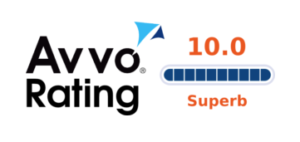



Experienced Guardian Disability Insurance Attorneys Helping Denied Claimants Across the US
Guardian Denial
Guardian Appeals
Guardian Lawsuit
Dedicated Guardian Life Insurance Lawyers Serving Clients Across the US
Contrary to its name, Guardian Life Insurance Company of America (Guardian) offers more than just life insurance. It provides a plethora of insurance products including disability income insurance. The company only offers a particular insurance product after a risk-benefit algorithm determines your risk of becoming disabled. This underwriting process permits Guardian and other major insurers to take in $1.2 trillion in insurance premiums each year while minimizing the risk of payout. When you have questions or are unsure of the benefits being presented to you, call our Guardian Life Disability Insurance Lawyer.
Guardian is in the insurance business to make money, many millions of dollars each year. While nothing is wrong with running a successful business, some of these profits come at the expense of Guardian’s disability policyholders, who had their valid individual or group long-term disability benefits wrongfully delayed, denied, or terminated. A wrongfully denied claim for individual or group disability benefits by Guardian, or its subsidiary Berkshire Life, means that you aren’t getting the financial assistance you deserve when you need it most—after a disabling injury or illness has left you unable to perform the important duties of your occupation. Trust our 100 years of combined litigation and claim experience in the field of long-term disability law—if you become a liability, you may find yourself wrongfully denied individual or group long-term disability benefits. This is where our Guardian Life Disability Insurance Lawyer can help.
At DarrasLaw, our top-rated team of nationally renowned long-term disability lawyers and ERISA attorneys are here to help you obtain your rightful individual or group long-term disability benefits. Our founding partner, Frank N. Darras, and his firms have recovered nearly $1 billion in wrongfully denied insurance benefits on behalf of people just like you. When you are ready to tell Guardian enough is way too much, we offer a free disability policy analysis and free claim consultation to discuss your options. Call America’s top-rated individual and group disability insurance law firm today at 800-898-7299 or contact us online.
Types of Guardian Disability Income Insurance Policies
 Guardian Life offers both group long-term disability insurance policies as well as individual disability policies through Berkshire Life Insurance Company of America. Guardian typically targets its individual and group long-term disability insurance products toward professionals, including accountants, lawyers, doctors, corporate employees, and government workers.
Guardian Life offers both group long-term disability insurance policies as well as individual disability policies through Berkshire Life Insurance Company of America. Guardian typically targets its individual and group long-term disability insurance products toward professionals, including accountants, lawyers, doctors, corporate employees, and government workers.
“Income insurance” is a good way to describe individual and group long-term disability insurance benefits. Health insurance pays your medical bills when you get sick, and car insurance pays your claims after a vehicle accident. Disability insurance replaces your income so you can pay your bills after a disabling injury or illness leaves you unable to perform the important duties of your occupation. Guardian offers the following long-term disability insurance policies:
- Individual long-term disability insurance – This private insurance generally replaces a percentage, typically 60 percent, of your base income. This coverage does not typically include overtime income. Guardian’s individual long-term disability insurance may also cover student loan payments and stays with you after a job change. Individual long-term disability benefits are not generally subject to federal ERISA regulations or tax if you pay the premiums personally.
- Business owner’s disability insurance – This individual disability insurance is designed to protect sole proprietors and business owners. It helps cover payroll, can provide key-man partnership buyout benefits, and can also cover business loan payments. This disability insurance is designed to keep your business running if you’re disabled.
- Employer-sponsored group disability insurance – These benefits are available to employers who either voluntarily pay the premiums or the employer pays for the policy for its employees. The insurance risk is allocated throughout the group, and you may qualify for group benefits but not individual disability benefits since group coverage has very relaxed underwriting. These group benefits only cover 50-60 percent of your base income. Group disability policies generally don’t cover secondary income. Group plans are also subject to federal ERISA regulations unless you work for a government, school, church or a sole proprietor.
- Partial disability insurance – These policies can be individual or group sponsored and generally provide benefits if you can do some but not all of your duties and you suffer at least a 20 percent loss of income.
Fighting for ERISA Group Plan Benefits Wrongfully Denied by Guardian Life
The Employee Retirement Income Security Act (ERISA) generally governs employer-sponsored and group long-term disability plans. ERISA is a complex and ever-changing set of complicated federal laws whose interpretations may differ based on your federal district.
ERISA requires strict adherence to certain procedural and administrative appeal requirements after a wrongful denial or termination of long-term group disability benefits.
ERISA sets strict and unforgiving time limits for filing an administrative appeal with a group long-term disability insurance company after an initial denial of your benefits. ERISA also sets strict and unforgiving deadlines for filing a federal ERISA lawsuit after a denial of an administrative appeal. Do not wait to speak to a top-rated Guardian Life Disability Insurance Lawyer at DarrasLaw if Guardian Life or its subsidiaries are denied your rightful long-term disability group benefits.
Unlike the litigation rights afforded to individual policyholders, ERISA policyholders must timely file an administrative appeal with Guardian before bringing wrongful denial claims in federal court. Any federal litigation is further limited to the evidence you and your carrier presented in the underlying claim and your group’s administrative appeal.
Appealing following a group disability denial with occupational, medical, vocational, and financial evidence is called the administrative record, and the federal ERISA judge will only overturn an arbitrary and capricious decision by the insurer, or in some states, based on a de novo review of the record. Your long-term group ERISA attorney must generally overcome this evidentiary presumption with compelling medical evidence and objective proof making up the administrative record. During a federal ERISA lawsuit, claimants cannot introduce evidence that they inadvertently omitted or just didn’t know to submit from the administrative appeal or new evidence in support of their valid group ERISA claims.
Most ERISA beneficiaries don’t understand their severely limited group litigation rights. In fact, many attorneys practicing law don’t understand ERISA’s complexities. It’s essential to consult a Guardian Life Disability Insurance Lawyer from DarrasLaw at the onset of your disability case. We know the Guardian administrative appeal process and evaluate thousands of disability cases each month from all across America.
Our experienced ERISA attorneys can tell you how to bulletproof your administrative record with the proper medical and occupational evidence necessary to overturn Guardian’s wrongful denial or termination of your long-term group disability benefits. Even if you’re initially denied, as most claimants are, the litigation-savvy long-term ERISA group attorneys at DarrasLaw are thinking one step ahead. We’ll work with your treating doctors and medical experts to ensure that you present the proper and most persuasive evidence necessary to make your claim against Guardian successful.
Understanding your Guardian Life Disability Coverage
Back pain, neck pain, and arthritis are the leading causes of disability worldwide, and cardiac disabilities are the number one killer in America. Guardian claims that its individual and group long-term disability policies don’t just cover catastrophic injuries, such as car accidents or traumatic brain injuries, but also provide benefits for common illnesses such as arthritis and heart disease. This may be true—but only if you purchased the right coverage, have a covered condition, and avoid numerous disability policy pitfalls and fatal claim application mistakes.
The three long-term disability coverage types include:
- Any occupation coverage – Even the name of this type of coverage is misleading. You can only claim “any occupation” individual or group long-term disability benefits if a disabling injury or illness prevents you from performing any occupation for which you are trained, educated, or suited, taking into consideration your station in life. For example, you’re a surgeon struggling with arthritis in your knees. You can’t perform surgery, but you can still teach. You don’t qualify for “any occupation” coverage.
- Modified own occupation coverage – This coverage is more specific. It provides individual or group disability benefits if you can’t perform the important duties of your normal occupation. Modified own occupation coverage provides benefits if you can’t do your occupation for 5 years or 10 years then switches to any occupation definition.
- True own-occupation coverage – With true own-occupation coverage, your occupation’s duties are defined as exactly how you perform them. This means a traveling accountant who can’t drive may qualify for individual or group disability benefits, and a surgeon who can’t perform specialized surgery won’t have to start teaching.
“Modified own” occupation coverage is commonly used for some individual policies and employer-sponsored group plans, while “any occupation” plans are usually a group policy feature. Do not assume you have “true own” occupation coverage without scheduling a free policy review and free claim consultation with the top-rated long-term disability attorneys and experienced Guardian Life Insurance lawyers at DarrasLaw.
Stop the Wrongful Delay, Denial, and Termination Games by Guardian: Reach Our to Our Guardian Life Insurance Lawyer
Whether you’ve chosen Guardian as your individual disability insurance provider or are with them through an employer-provided group policy, you still have the legal right to fair, good-faith treatment. This is a basic premise of disability law even with complex disability policies.
The following are the most common reasons that individual and group long-term disability insurance companies deny or terminate disability benefits. Remember, if you become a financial liability to Guardian, you may find your “square-peg” case shoved into a “round-hole” exclusion.
If any of the following claim problems emerge with your valid individual or group disability claim for Guardian or Berkshire individual or group long-term disability benefits, DarrasLaw may help:
- A false assertion that your disabling condition was pre-existing and does not qualify for individual or group long-term disability benefits under your policy. Furthermore, any condition arising from, that contributed to, or is related to a pre-existing condition may not qualify for coverage depending on the “look back period.” For example, many patients with Type 2 diabetes experience neurological complications in their eyes, ears, and feet resulting from capillary damage. If you had diabetes before your coverage began, your individual or group long-term disability insurance company may deny individual or group long-term disability benefits for vision loss because they “arose” from your diabetes. This may not be true, but valid individual or group disability claims are often wrongfully denied under this coverage exception.
- A failure by Guardian to follow the terms of its plan when deciding your eligibility for individual or group long-term disability benefits. Major individual and group long-term disability insurers do this by shading the interpretation of an “own occupation” policy to an “any occupation” policy, hoping you may not consult with a nationally renowned long-term disability attorney or top-rated ERISA lawyer from DarrasLaw. You may qualify for modified own occupation or true own-occupation coverage but your individual or group long-term disability company denied you benefits because you can still teach, consult, or alter your work environment. These are wrongful denials if you have specialized occupational coverage. After a catastrophic injury or illness, insurers also commonly use vocational experts to find a fictional occupation that you can do even if you have no training, no experience, and no chance of successfully entering this occupation. Insurance company vocational experts may also “opine” your occupation is performed nationally different than your employer. You know your occupation better than these “experts,” and the experienced individual long-term disability attorneys and top-rated ERISA lawyers at DarrasLaw can help fight for the rightful interpretation of your occupation’s important duties.
- A persistent request for additional claim documentation, only to hear that the documentation supplied is incomplete or unsatisfactory. What happens when your individual or group long-term disability insurer insists you provide hospital records related to your disabling condition when you were never admitted to a hospital? You may get a wrongful denial of individual or group long-term disability benefits. Your individual or group long-term disability insurer may request authorizations for medical records for doctors you’ve never seen or don’t remember and then deny your individual or group long-term disability benefits because you failed to provide documents that don’t exist. You’re generally not required to submit unnecessary duplicative evidence or documents unrelated to your valid group ERISA long-term disability claim.
- A refusal to supplement Social Security Disability Insurance (SSDI) as required when the individual or group long-term disability benefits promised by Guardian exceed those received from SSDI. Some individual and all group ERISA long-term disability insurance policies, whether true own-occupation coverage or any occupation coverage, require that claimants apply for SSDI benefits. Many individual or group claimants won’t qualify for SSDI, but those who do are generally entitled to receive both their SSDI benefits and the difference between their federal benefit and private individual or group long-term disability benefits. For example, if your Guardian policy entitles you to $4,000 a month in group long-term disability benefits and you receive $2,500 a month from SSDI, you’re still entitled to the difference of $1,500 a month from Guardian.
- A Guardian-hired, improperly credentialed doctor does a “paper medical review” of your file and determines that you are not disabled or are ready to return to work. This is one of the most common denials we see at DarrasLaw. In fact, we’re often surprised when an insurance company-paid doctor doesn’t find you can return to work or that a condition wasn’t pre-existing, or that your medical condition wasn’t “age-related.” Federal courts are well aware of the flaws inherent in the independent examination system, and we can help your treating doctor fight a wrongful denial of individual or group long-term disability benefits.
- Guardian hired a private investigator who took a video of you that Guardian claims shows no disability restrictions. The higher the value of your case, the greater the extremes your individual or group long-term disability insurer may go to deny your individual or group long-term disability benefits. For example, many disabling conditions involve flare-ups or cycles of disability. Multiple sclerosis, kidney failure, and arthritis are some examples. The day after dialysis, you may drive and go to the store on your own, but not the next four days of the week. Your insurer may present the video of you shopping and driving to justify wrongfully denying your individual or group long-term disability benefits.
If Guardian sends you to a functional capacity exam (FCE) or independent medical exam (IME) by a doctor or physical therapist the insurance company chooses—the doctor may lack the proper training or specialization to properly evaluate your disability—seek immediate assistance from an experienced, top-rated Guardian Life Disability Insurance Lawyer at DarrasLaw. Don’t be surprised when you receive a biased and unreasonable defense medical report. We see this scenario on a daily basis and are ready to help you protect your legal rights under federal and state disability laws. Our top-rated disability lawyers and award-winning ERISA attorneys know what the IME doctors are looking for and can suggest protections for you during the insurance medical examination.
Fighting Lowball Disability Settlement Offers from Guardian
Catastrophic disabilities such as cancer, renal failure, AIDS, traumatic brain injuries, and ALS may clearly qualify you for individual or group long-term disability benefits. In such cases, Guardian will look at your age, income, and the severity of your disability to calculate your anticipated disability payout. It may then offer to “settle” your valid group individual or group long-term disability claim with a lump sum payout that releases the company from further liability and saves money in the long term. Instead of paying you $600,000 during the next 20 years, Guardian may offer you a one-time payout of $200,000. This seems like a lot until you consider how much Guardian is benefiting from the settlement. You’re losing $400,000 throughout your work life. You may make the right decision to settle your valid group individual or group long-term disability claim, but only if Guardian offers a fair and reasonable settlement amount.
At DarrasLaw, we know a disabling illness or injury can leave your family with substantial financial problems and needs. A settlement offer is enticing if you’ve spent years fighting Guardian for your rightful individual or group long-term disability benefits and you have big bills to pay. The top-rated long-term disability lawyers and experienced ERISA attorneys at DarrasLaw can protect you from lowball settlement offers and reduce the stress associated with your valid individual or group ERISA long-term disability claim. We’ll help you calculate the true value of your disability case and help you negotiate a settlement with Guardian that’s right for you and your family.
Call Our Guardian Life Disability Insurance Lawyer Today for Immediate Assistance
Spearheaded by award-winning long-term disability attorney Frank N. Darras, our team of experienced long-term disability lawyers and top-rated ERISA attorneys at DarrasLaw have earned a national reputation for helping the disabled. We level the playing field when it comes to fighting powerful insurance conglomerates like Guardian after a wrongful delay or termination of individual or group long-term disability benefits. We’re familiar with Guardian’s wrongful denial tactics and the protections afforded you by state and federal laws. Whether we have to settle, timely work through an administrative appeal, or litigate, we fight for rightful individual and group long-term disability benefits while our clients work on getting better.
No case is too small or large for us at DarrasLaw. From $50 to $50,000,000, we protect the legal right to individual and group long-term disability benefits across America. Our experienced long-term disability attorneys and top-rated ERISA lawyers zealously and professionally represent disability claimants throughout the United States.
If you need help with your valid individual or group long-term Guardian disability insurance claim, why wouldn’t you partner with the nation’s top disability litigation firm that examines 2,500 new disability insurance policies every month? That’s more claims in a month than most disability firms evaluate in 10 years. To schedule your free Guardian disability policy analysis and free claim consultation, call DarrasLaw today at 800-898-7299 or contact us online.






